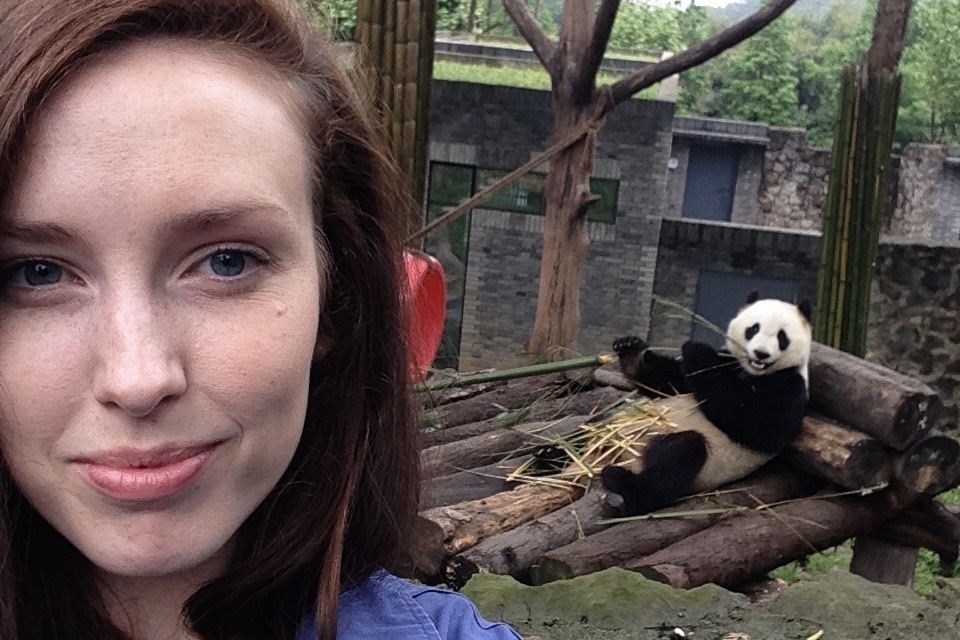
When Canadian Gloria Dickie started working toward earning her master’s degree in environmental journalism at CU Boulder in 2013, it coincided with an uptick in bear problems, specifically how they interact with humans. Wildlife managers were being forced to euthanize more American black bears in Boulder as a result and the city was on the path to becoming the largest at the time to pass an ordinance requiring residents use “bear-safe” trash containers.
“As I’d discovered in Boulder, people weren’t exactly sure how to coexist with bears living next door,” Dickie wrote in the preface to her recently released first book, “Eight Bears: Mythic Past and Imperiled Future.” The author’s student work on Boulder and its dealings with black bears inspired a five-year “ursine odyssey” to profile the eight remaining bear species on earth.
“Eight Bears” features Dickie, now graduated and 33, preparing bamboo for artificially inseminated panda bear cubs in China, traversing rock-strewn landscapes near Hudson Bay on a search for polar bears near fast-shrinking ice flows, and examining the contentious prospect of hunting grizzlies in their expanding territories in Wyoming and Montana.
“Bears are certainly not the only species threatened by climate change and habitat loss, a million species are currently threatened with extinction,” Dickie told Colorado Matters. “People are going to care about animals going extinct, I think they’ll care about bears as one of the first ones. So, maybe it’s a way to get into this and also think about some of the less charismatic that are also facing a lot of threats and don’t have someone who wrote a book about them.”

In a wide-ranging interview — which can be heard in full by clicking the audio player above — Dickie spoke about the inconsistencies in bear management, sometimes even within the same country. In China, for example, vast national resources are spent to protect the most-endangered bear, the panda bear. However, other vulnerable bear species such as moon bears and sun bears, are farmed in brutal fashion in China to extract bile from their gall bladders.
“It’s like this weird decision that was made at some point … in history that we’re going to treat this one bear this way and these other bears this completely different way,” Dickie said.
Despite the small population of pandas (fewer than 2,000 live in the wild) Dickie said she feels optimistic about the future of the species. After seeing how much money China is putting into saving the bear, she said she feels confident the bear will not go extinct.
Other species, however — in particular the polar bear — face much broader challenges that only seriously addressing climate change may fix.
“I’m an environmental journalist, so I think I’m always a cynic,” Dickie said.








